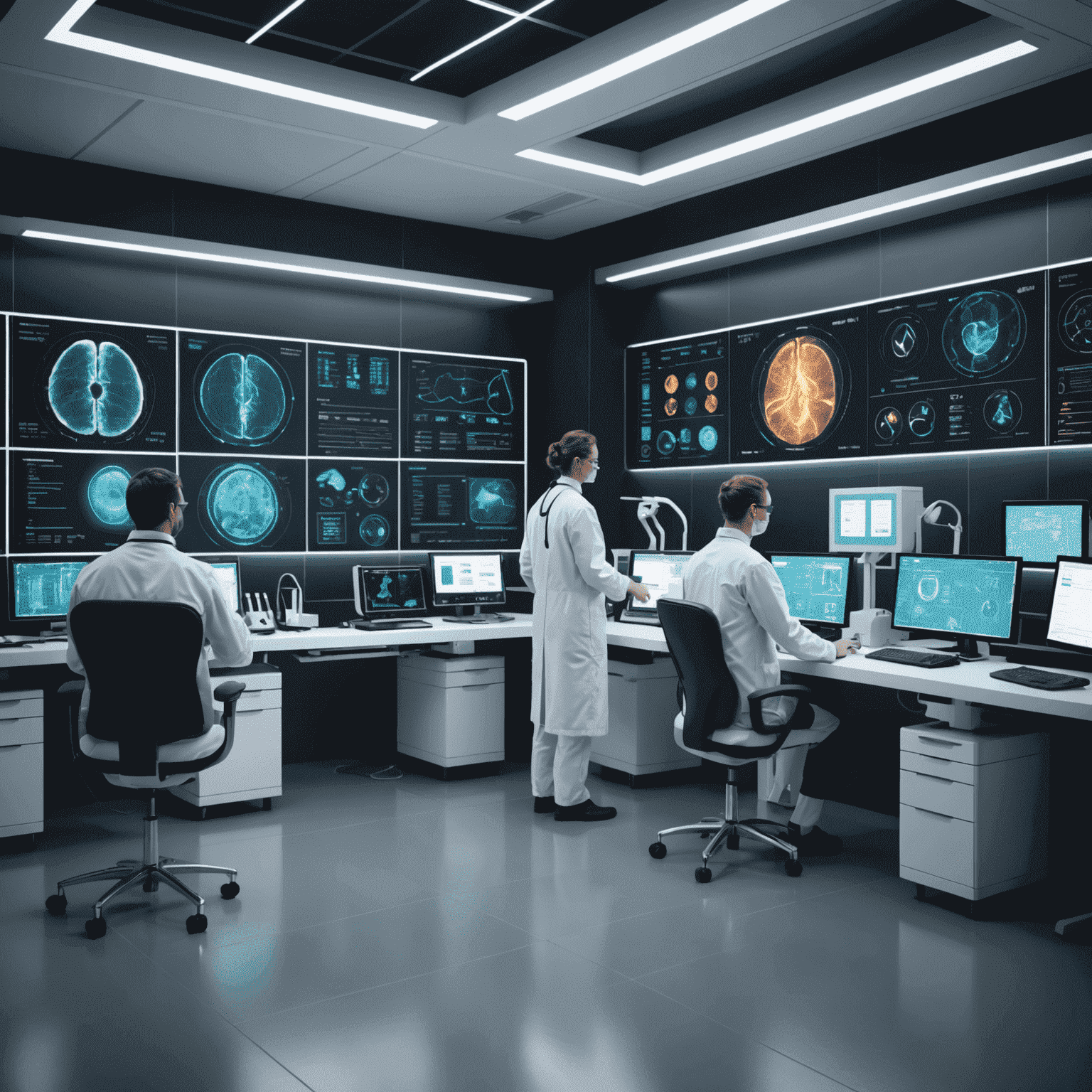Artificial Intelligence in Medicine

Innovative applications of AI in healthcare are revolutionizing disease diagnosis and drug development, paving the way for a new era in medical science.
AI-Powered Diagnostics
Artificial Intelligence is making significant strides in medical diagnostics. Machine learning algorithms can now analyze medical images with remarkable accuracy, often surpassing human capabilities in detecting subtle abnormalities.
- AI systems can identify early signs of cancer in mammograms and CT scans.
- Deep learning models assist in interpreting MRI scans for neurological disorders.
- Computer vision algorithms aid in the early detection of diabetic retinopathy.
Drug Discovery and Development
The pharmaceutical industry is leveraging AI to accelerate drug discovery processes and reduce costs:
- AI models predict how potential drug compounds will interact with target proteins.
- Machine learning algorithms analyze vast databases of medical literature to identify new uses for existing drugs.
- AI-driven simulations reduce the need for extensive animal testing in early stages of drug development.
Personalized Treatment Plans
AI is enabling the creation of highly personalized treatment plans based on individual patient data:
- Genetic information and patient history are analyzed to predict treatment efficacy.
- AI systems recommend optimal drug dosages based on patient-specific factors.
- Machine learning models help in predicting potential adverse drug reactions for individual patients.
Challenges and Future Prospects
While AI in medicine shows immense promise, several challenges remain:
- Ensuring patient privacy and data security in AI-driven healthcare systems.
- Addressing potential biases in AI algorithms that could lead to healthcare disparities.
- Integrating AI systems seamlessly into existing healthcare workflows and practices.
Despite these challenges, the future of AI in medicine looks bright. As technology continues to advance, we can expect even more groundbreaking applications that will transform healthcare delivery and improve patient outcomes.
Conclusion
The integration of Artificial Intelligence in medicine represents a paradigm shift in healthcare. From enhancing diagnostic accuracy to revolutionizing drug discovery, AI is poised to play a crucial role in shaping the future of medical science. As we continue to harness the power of AI, we move closer to a world where healthcare is more precise, personalized, and effective than ever before.